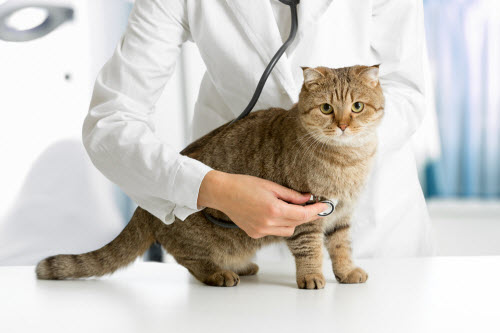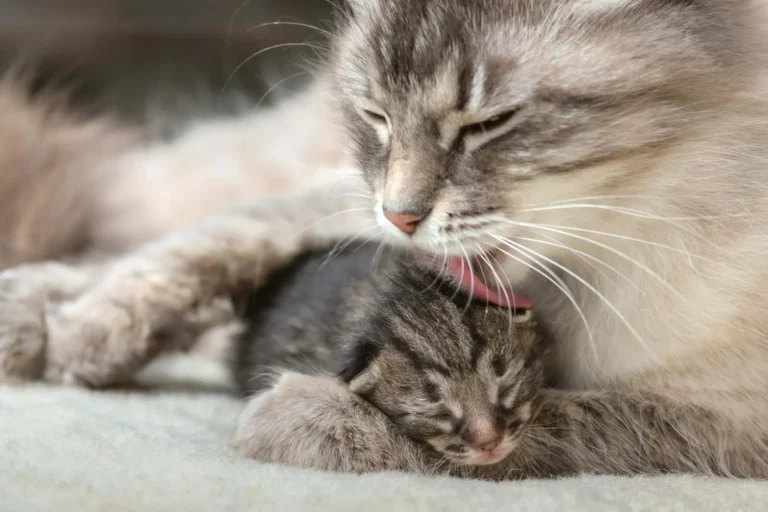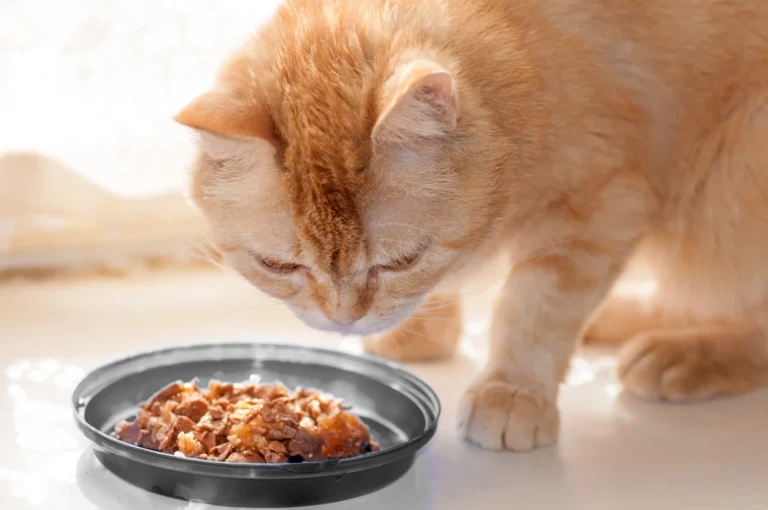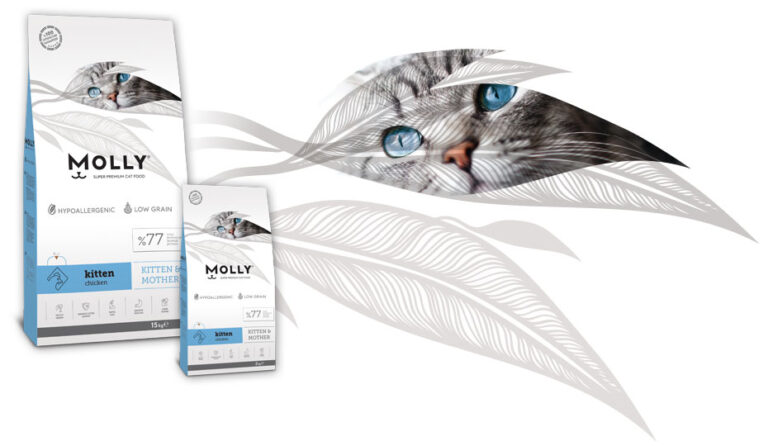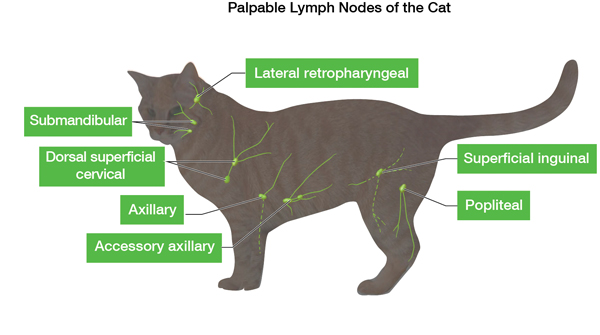Feline health problems
Common Ailments Affecting Cats: Exploring the Health Challenges Faced by Felines
It is a sad reality that our beloved feline companions are not immune to health challenges. Cats can suffer from a variety of common ailments that can affect their overall well-being. From respiratory issues to digestive disorders, these health problems can cause discomfort and distress for our feline friends.
Respiratory issues are a common ailment in cats and can be caused by various factors. Feline upper respiratory infection, also known as the cat flu, is a viral infection that can lead to sneezing, coughing, nasal discharge, and even fever. Another common respiratory problem in cats is asthma, which is characterized by wheezing, difficulty breathing, and coughing. Identifying the underlying cause of respiratory issues is crucial in order to provide the appropriate treatment and alleviate the discomfort experienced by our furry companions.
Understanding Respiratory Issues in Cats: Causes, Symptoms, and Treatment Options
Respiratory issues in cats can occur due to various causes, resulting in discomfort and potential health complications. One common cause is viral infections, such as feline herpesvirus and calicivirus, which can lead to respiratory symptoms. Cats may exhibit symptoms like sneezing, coughing, nasal discharge, and difficulty breathing when affected by these viruses. Additionally, bacterial infections can also affect a cat’s respiratory system, resulting in respiratory issues. These infections may be caused by bacteria such as Bordetella bronchiseptica and Mycoplasma species. If left untreated, respiratory issues in cats can worsen over time, so seeking prompt veterinary care is crucial for their well-being.
Diagnosing respiratory issues in cats often involves a thorough examination by a veterinarian. They may listen to the cat’s lungs for abnormal sounds and perform additional tests like blood work, radiographs, or swabbing the nasal cavity for laboratory analysis. Treatment options for respiratory issues vary depending on the underlying cause and severity of symptoms. In cases of viral infections, supportive care, such as ensuring proper hydration and administering antiviral medications, may be recommended. Antibiotics may be prescribed for bacterial infections, and in more severe cases, hospitalization and oxygen therapy might be necessary. Working closely with a veterinarian will help determine the most appropriate treatment plan for a cat’s respiratory issues, improving their chances of recovery.
Unraveling Digestive Disorders in Cats: From Vomiting to Diarrhea, What You Should Know
Digestive disorders are a common problem in cats and can manifest in various ways, including vomiting and diarrhea. These symptoms can be caused by a number of factors, such as dietary indiscretion, allergies, infections, or underlying medical conditions. It is essential for cat owners to be vigilant and aware of these disorders, as early intervention can prevent further complications and discomfort for their feline companions.
Vomiting is a common gastrointestinal problem in cats, and it can be a result of a variety of causes. Some cats may vomit occasionally due to hairballs, whereas others may have more frequent episodes as a result of dietary issues or gastrointestinal inflammation. It is important to distinguish between regular hairball-induced vomiting and abnormal vomiting, as persistent vomiting can indicate an underlying health issue. On the other hand, diarrhea in cats can also be an indication of digestive disorders. It can be caused by dietary changes, food allergies, infections, or inflammatory bowel disease. Monitoring the frequency, consistency, and color of the stool can provide valuable information for veterinarians in diagnosing and treating the underlying condition.
Shedding Light on Skin Conditions in Cats: Identifying and Managing Dermatological Problems
Skin conditions are a common health problem in cats, and it is important for owners to be able to identify and manage these dermatological issues. One of the most common skin conditions in cats is dermatitis, which refers to inflammation of the skin. Cats can develop dermatitis due to a variety of reasons, including allergies, parasites, infections, or even stress. Symptoms of dermatitis may include redness, itching, hair loss, and the formation of scabs or sores. It is crucial for owners to keep an eye out for these signs and consult a veterinarian for proper diagnosis and treatment.
Another skin condition that cats can experience is feline acne. Yes, just like humans, cats can get acne too! Feline acne usually occurs on the chin and lips, and it can be caused by a variety of factors, such as poor grooming habits, stress, or even a reaction to certain plastic food bowls. The symptoms of feline acne may include blackheads, redness, swelling, and even the development of pustules. To manage feline acne, proper hygiene is essential. Regular cleaning of the affected areas with a mild antiseptic solution recommended by a veterinarian can help to prevent further flare-ups and promote healing.
Dental Health Matters: The Importance of Oral Care for Cats and Common Dental Issues
Oral care is a vital aspect of overall health for cats. Just like humans, cats can experience a range of dental issues that, if left untreated, can lead to pain, discomfort, and even more severe health complications. Regular oral care is essential to prevent these problems and ensure the well-being of our feline friends.
One common dental issue in cats is the buildup of plaque and tartar on their teeth. This can result in gingivitis, an inflammation of the gums, which in turn can progress to periodontal disease. Symptoms of dental problems in cats may include bad breath, difficulty chewing, drooling, swollen or bleeding gums, and even tooth loss. Therefore, it is crucial for cat owners to prioritize oral care by brushing their cat’s teeth regularly, providing dental-friendly treats or toys, and scheduling routine dental check-ups with their veterinarian. By taking these simple steps, we can help our cats maintain healthy teeth and gums, which ultimately contributes to their overall well-being.
The Silent Threat: Recognizing and Combating Kidney Disease in Felines
Kidney disease is a silent but serious threat to the health of felines. This condition can often go unnoticed until it reaches advanced stages, making early detection crucial for effective treatment. Cats of all ages can be affected by kidney disease, but it is most commonly observed in older cats. Common symptoms include increased drinking and urination, weight loss, poor appetite, vomiting, and lethargy. If your cat displays any of these signs, it is important to consult a veterinarian for a proper diagnosis and to discuss the best course of action.
Once diagnosed, there are various ways to combat kidney disease in felines. Treatment options include dietary changes, medication, and in some cases, fluid therapy. Feeding your cat a specially formulated diet low in protein and phosphorus can help reduce the workload on the kidneys and slow down the progression of the disease. Medications may be prescribed to alleviate symptoms and manage complications. Additionally, regular check-ups and monitoring of kidney function through blood and urine tests are essential for assessing the effectiveness of the treatment plan and making any necessary adjustments. With prompt diagnosis and appropriate treatment, the impact of kidney disease can be minimized, improving the overall quality of life for affected cats.
Managing Weight and Nutrition in Cats: Preventing Obesity and Addressing Nutritional Deficiencies
Cats, like humans, can also struggle with weight and nutrition issues. Preventing obesity and addressing nutritional deficiencies are essential in maintaining their overall health and well-being. Maintaining a healthy weight is crucial for cats as it helps reduce the risk of various health problems such as diabetes, arthritis, and heart disease.
To prevent obesity in cats, it is important to provide them with a balanced diet that meets their nutritional needs. Feeding them a high-quality, commercially prepared cat food is recommended as it contains the necessary nutrients in the right proportions. Avoid giving them excessive treats or table scraps as these can contribute to weight gain. Instead, consider using interactive toys or puzzle feeders to provide mental stimulation and exercise while they eat. Monitoring their food intake and adjusting portion sizes according to their age, activity level, and weight is also vital in maintaining their ideal body condition. Regular exercise sessions, such as playtime with toys or engaging them in interactive activities, can help keep their weight in check and prevent obesity.
Addressing nutritional deficiencies is equally important to ensure cats receive all the necessary nutrients for optimal health. A well-balanced diet should include proteins, carbohydrates, fats, vitamins, and minerals. However, it may be challenging for cat owners to determine the right balance of nutrients for their furry companions. If in doubt, consulting a veterinarian or a feline nutrition expert can provide valuable guidance on selecting the most suitable cat food or supplements to address any specific nutritional deficiencies. By proactively managing weight and nutrition in cats, we can help them lead healthier, happier lives.
Exploring the World of Allergies in Cats: From Environmental Triggers to Food Sensitivities
Allergies in cats can manifest in various ways, causing discomfort and distress to our feline companions. Environmental triggers such as pollen, dust mites, and mold can prompt allergic reactions in cats. These allergens can be found both indoors and outdoors, making it challenging to completely eliminate exposure. Cats with environmental allergies may experience symptoms like sneezing, itching, and watery eyes. In severe cases, they may develop skin rashes or respiratory issues. It is essential for cat owners to be vigilant and create a hypoallergenic environment by regularly cleaning and vacuuming to minimize the presence of allergens.
Alongside environmental triggers, food sensitivities can also lead to allergic reactions in cats. Certain ingredients commonly found in cat food, such as beef, dairy, and fish, can trigger allergic responses. Cats with food allergies may exhibit symptoms like vomiting, diarrhea, or gastrointestinal distress. Identifying the specific food allergens can be challenging, as it often requires a process of elimination. Once the allergens are identified, a tailored diet can be prescribed to manage the allergies and provide relief for the affected feline. Regular monitoring and consultation with a veterinarian are crucial to ensure a balanced and nutritious diet for cats with food sensitivities. By understanding the different triggers and managing them effectively, cat owners can contribute to their fluffy friends’ overall wellbeing and comfort.
What are some common ailments that affect cats?
Common ailments affecting cats include respiratory issues, digestive disorders, skin conditions, dental issues, kidney disease, weight and nutrition problems, and allergies.
What are the causes, symptoms, and treatment options for respiratory issues in cats?
Respiratory issues in cats can be caused by infections, allergies, or environmental factors. Common symptoms include coughing, sneezing, difficulty breathing, and nasal discharge. Treatment options depend on the underlying cause and may include medication, environmental management, or supportive care.
What should I know about digestive disorders in cats?
Digestive disorders in cats can manifest as vomiting, diarrhea, or other gastrointestinal symptoms. They can be caused by dietary intolerances, infections, or underlying medical conditions. It’s important to identify the cause and work with a veterinarian to develop a management plan.
How can I identify and manage dermatological problems in cats?
Dermatological problems in cats can include skin allergies, infections, or parasites. Identifying the underlying cause may require diagnostic tests. Treatment options could include medications, changes in diet, or environmental management.
Why is dental care important for cats and what are some common dental issues?
Dental care is important for cats to prevent oral health problems such as gum disease, tooth decay, and oral infections. Common dental issues in cats include periodontal disease, tooth resorption, and stomatitis. Regular dental check-ups and proper oral hygiene are crucial in maintaining a cat’s dental health.
How can I recognize and combat kidney disease in cats?
Recognizing kidney disease in cats can involve observing symptoms like increased thirst, frequent urination, weight loss, and decreased appetite. Diagnosis often requires blood and urine tests. Treatment options may include dietary changes, medications, and supportive care.
How can I manage weight and nutrition in cats to prevent obesity and nutritional deficiencies?
Proper weight and nutrition management in cats involves feeding a balanced diet, controlling portion sizes, and monitoring their weight. Providing regular exercise and avoiding excessive treats can also help prevent obesity. Consulting with a veterinarian for guidance on specific dietary needs is recommended.
What should I know about allergies in cats, including environmental triggers and food sensitivities?
Allergies in cats can be caused by environmental triggers such as pollen, dust mites, or certain chemicals. They can also develop food sensitivities to specific ingredients. Identifying and avoiding the allergens can help manage allergies in cats. In some cases, medication or specialized diets may be recommended by a veterinarian.

